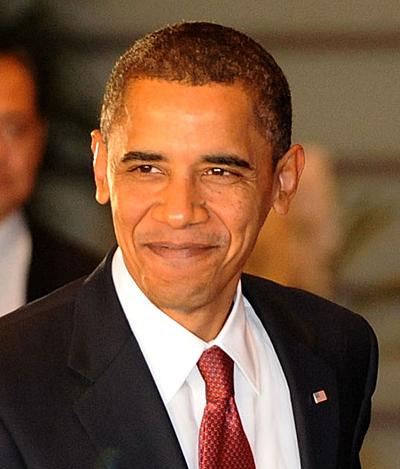One step forward toward realizing U.S. President Barack Obama’s vision of “a world without nuclear weapons”
Dec. 25, 2010
by Akira Tashiro, Executive Director of the Hiroshima Peace Media Center
The U.S. Senate has finally approved the ratification of the new Strategic Arms Reduction Treaty, or the new START treaty, with Russia, which was somehow difficult to achieve. The Duma, or Russian Parliament, will shortly follow suit with ratification. Although U.S. ratification of the treaty marks but a small step toward the larger end of realizing “a world without nuclear weapons,” a goal that the A-bombed cities of Hiroshima and Nagasaki have been appealing for and U.S. President Barack Obama himself has been advocating, it can be said, nevertheless, that this is a significant step forward for the United States, Russia, and the international community.
In the current climate, Mr. Obama could not afford to fail in fulfilling the treaty’s ratification. Failure would not only have undermined the relationship of trust with Russia, it could have also dealt a severe blow to the nuclear disarmament and non-proliferation initiative that Mr. Obama has shown to the world since he assumed the presidency.
The United States and Russia, the two nuclear superpowers, have been in possession of about 95 percent of all nuclear weapons in the world. If the new START treaty had been derailed due to the United States, the nation which the international community has called on most vigorously to effect significant nuclear disarmament, chances were high that momentum for disarmament, which has been building internationally over the past few years, as well as efforts to strengthen nuclear non-proliferation, would have begun moving in a contrary direction.
Former senior U.S. government officials who have lent their support to Mr. Obama’s nuclear policy and have been influential figures in the Republican Party, including former Secretaries of State George Schultz and Henry Kissinger, are said to have played a major role in the realization of the treaty’s ratification. Based on their advice, Mr. Obama announced that his administration would undertake concrete efforts in nuclear disarmament in a noted speech he made in Prague in April 2009.
The fulfillment of the new disarmament treaty between the United States and Russia is one of these efforts. Among other goals are the early ratification of the Comprehensive Nuclear Test Ban Treaty (CTBT) and the early start of negotiations for a Fissile Material Cut-off Treaty, which is related to nuclear terrorism and nuclear non-proliferation as well.
Mr. Obama’s Democratic Party, which suffered a crushing defeat in the latest midterm election, will face additional difficulties in running the government next year with regard to domestic affairs, including economic and employment policies. Under such circumstances, I wonder to what extent his administration will be able to make further progress in nuclear disarmament policy. Toward that end, the world must generate a growing groundswell of anti-nuclear public opinion, including in the United States and in the A-bombed nation of Japan.
(Originally published on December 24, 2010)
U.S. Senate approves ratification of new START treaty
The U.S. Senate has finally approved the ratification of the new Strategic Arms Reduction Treaty, or the new START treaty, with Russia, which was somehow difficult to achieve. The Duma, or Russian Parliament, will shortly follow suit with ratification. Although U.S. ratification of the treaty marks but a small step toward the larger end of realizing “a world without nuclear weapons,” a goal that the A-bombed cities of Hiroshima and Nagasaki have been appealing for and U.S. President Barack Obama himself has been advocating, it can be said, nevertheless, that this is a significant step forward for the United States, Russia, and the international community.
In the current climate, Mr. Obama could not afford to fail in fulfilling the treaty’s ratification. Failure would not only have undermined the relationship of trust with Russia, it could have also dealt a severe blow to the nuclear disarmament and non-proliferation initiative that Mr. Obama has shown to the world since he assumed the presidency.
The United States and Russia, the two nuclear superpowers, have been in possession of about 95 percent of all nuclear weapons in the world. If the new START treaty had been derailed due to the United States, the nation which the international community has called on most vigorously to effect significant nuclear disarmament, chances were high that momentum for disarmament, which has been building internationally over the past few years, as well as efforts to strengthen nuclear non-proliferation, would have begun moving in a contrary direction.
Former senior U.S. government officials who have lent their support to Mr. Obama’s nuclear policy and have been influential figures in the Republican Party, including former Secretaries of State George Schultz and Henry Kissinger, are said to have played a major role in the realization of the treaty’s ratification. Based on their advice, Mr. Obama announced that his administration would undertake concrete efforts in nuclear disarmament in a noted speech he made in Prague in April 2009.
The fulfillment of the new disarmament treaty between the United States and Russia is one of these efforts. Among other goals are the early ratification of the Comprehensive Nuclear Test Ban Treaty (CTBT) and the early start of negotiations for a Fissile Material Cut-off Treaty, which is related to nuclear terrorism and nuclear non-proliferation as well.
Mr. Obama’s Democratic Party, which suffered a crushing defeat in the latest midterm election, will face additional difficulties in running the government next year with regard to domestic affairs, including economic and employment policies. Under such circumstances, I wonder to what extent his administration will be able to make further progress in nuclear disarmament policy. Toward that end, the world must generate a growing groundswell of anti-nuclear public opinion, including in the United States and in the A-bombed nation of Japan.
(Originally published on December 24, 2010)








